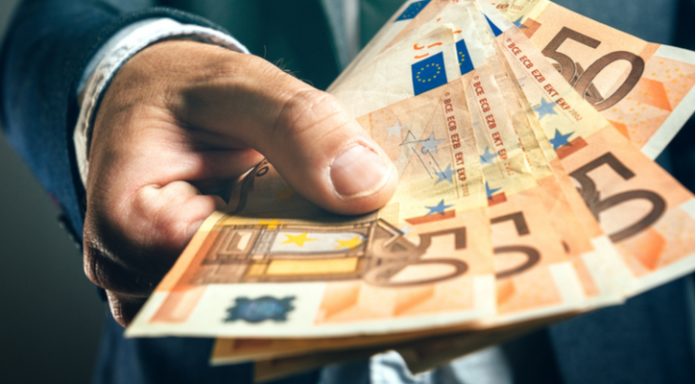An impassioned speech from UK Prime Minister Theresa May, defending her Brexit plan boosted the pound versus the euro on Wednesday. Meanwhile the Italian budget update satisfied investors for the time being. As a result, the pound euro exchange rate climbed northwards, hitting a high of €1.1287.
| What do these figures mean? |
|---|
|
When measuring the value of a pair of currencies, one set equals 1 unit and the other shows the current equivalent. As the market moves, the amount will vary from minute to minute. For example, it could be written: 1 GBP = 1.13990 EUR Here, £1 is equivalent to approximately €1.14. This specifically measures the pound’s worth against the euro. If the euro amount increases in this pairing, it’s positive for the pound. Or, if you were looking at it the other way around: 1 EUR = 0.87271 GBP In this example, €1 is equivalent to approximately £0.87. This measures the euro’s worth versus the British pound. If the sterling number gets larger, it’s good news for the euro. |
Theresa May vehemently defended her Brexit Chequers plan in the previous session. On the final day of the UK Conservative party annual conference the Prime Minister unveiled her updated version after Brussels dismissed the original. In the eyes of the markets this is a step in the right direction. The test now is whether Brussels are willing to accept the adjusted proposals and more importantly, whether the DUP will agree to them. Without the support of the DUP Theresa May could struggle to get any Brexit deal through the UK Parliament. Pound investors focused on the positives and optimism of an orderly Brexit boosted the pound.
| Why is a “soft” Brexit better for sterling than a “hard” Brexit? |
|---|
| A soft Brexit implies anything less than UK’s complete withdrawal from the EU. For example, it could mean the UK retains some form of membership to the European Union single market in exchange for some free movement of people, i.e. immigration. This is considered more positive than a “hard” Brexit, which is a full severance from the EU. The reason “soft” is considered more pound-friendly is because the economic impact would be lower. If there is less negative impact on the economy, foreign investors will continue to invest in the UK. As investment requires local currency, this increased demand for the pound then boosts its value. |
Brexit optimism overshadowed unimpressive UK service sector data. The service sector PMI ticked lower than analysts had been expecting in September. A print of 53.9 was lower than the 54 that analysts had pencilled in. It was also a fall from the 54.5 reading in August. The lower figure combined with a lower construction pmi suggests that the UK economy is grinding slower as uncertainty over Brexit is impacting on the economy.
There is no high impacting UK data due for release today. Investors will look towards further Brexit headlines for direction.
Euro Steady As Italian Fears Continue To Ease
The euro traded broadly flat versus its peers on Wednesday. Disappointing economic data was cancelled out by optimism over Italy’s budget plan. Fears over the state of spending in Italy and the potential for another debt crisis had been weighing on demand for the common currency. However, reports that Rome is looking to bring the budget deficit down to 2% in 2020 helped ease those fears, boosting demand for the euro.
However, retail sales figures missing analysts’ forecast dampened demand for the euro. Retail sales unexpectedly declined again in August when analysts had been expecting sales to have increased. Economists often consider that retail sales are an indication of future inflationary pressures. Lower sales indicate lower future inflation, which makes an interest rate increase less likely.
| Why do raised interest rates boost a currency’s value? |
|---|
| Interest rates are key to understanding exchange rate movements. Those who have large sums of money to invest want the highest return on their investments. Higher interest rate environments tend to offer higher yields. So, if the interest rate or at least the interest rate expectation of a country is relatively higher compared to another, then it attracts more foreign capital investment. Large corporations and investors need local currency to invest. More local currency used then boosts the demand of that currency, pushing the value higher. |
This publication is provided for general information purposes only and is not intended to cover every aspect of the topics with which it deals. It is not intended to amount to advice on which you should rely. You must obtain professional or specialist advice before taking, or refraining from, any action on the basis of the content in this publication. The information in this publication does not constitute legal, tax or other professional advice from TransferWise Inc., Currency Live or its affiliates. Prior results do not guarantee a similar outcome. We make no representations, warranties or guarantees, whether express or implied, that the content in the publication is accurate, complete or up to date. Consult our risk warning page for more details.
This article was initially published on TransferWise.com from the same author. The content at Currency Live is the sole opinion of the authors and in no way reflects the views of TransferWise Inc.





